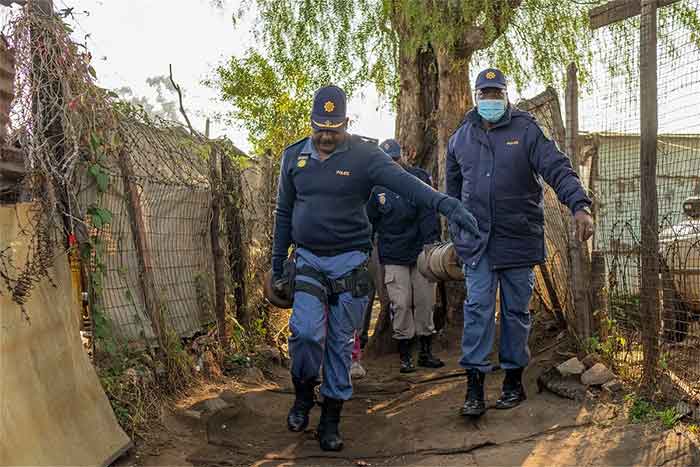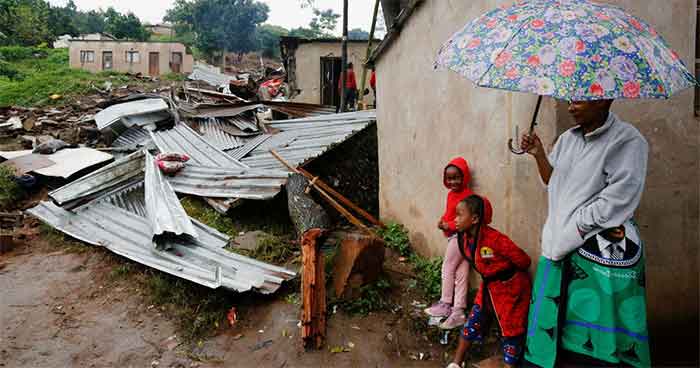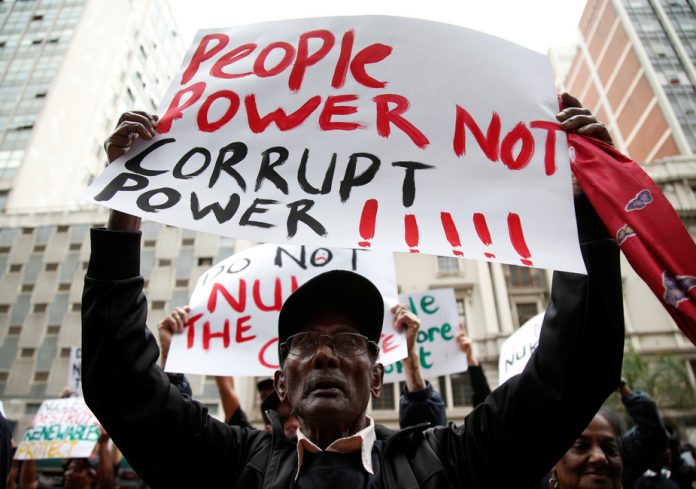
At the time of writing this piece, there were 17 black people confirmed dead at the Angelo informal settlement in Boksburg near Johannesburg in South Africa – and many more are still recovering mostly from the Tambo Memorial public hospital. Preliminary investigations confirmed by the South African Police Service, the Premier of the Gauteng province, and the Mayor of the Ekurhuleni Municipality have attached the incident to the leakage of nitrate oxide and/or gas emanating from illegal mining activities near this informal settlement.
A 2016 report on illegal mining commissioned by the South African Chamber of Mines revealed that South Africa loses over R20 billion a year from uncollected taxes, sales, and royalties from illegal mining activities – and about 90% of the labour utilized in illegal mining consists of undocumented immigrants. In other words, illegal mining in South Africa is a lucrative industry that is carefully operated illicitly by an organised network of big international criminals.
The Legislative Guide on Illegal Mining issued by the United Nations in 2020 also showed there is a consistent rise of environmental crimes by global corporations – who are targeting illegal trade in wildlife, fishing, mining, and waste trafficking to make illicit profits. This report also attaches these illegal trades in environmental items to the broader crimes of drugs trade, political corruption, and collusions with international banking oligopolies to consolidate a fierce underground world of money laundering.
In essence, if the official reports of the government concerning this tragedy at Boksburg are anything to believe, then we have a crisis of security in our country and in the Southern African region. Mining in the Southern African Development Community (SADC) region has a frightening history that continues to haunt it today. Hugh Masekela’s all-time jazz classic song, Stimela, captures the systematic damage that the convergence of mining, settler colonialism, and capitalism has had on the people, communities, and economies of the SADC. The death of these 17 black people in Boksburg show that this painful reality inherited from apartheid-colonialism still lives with us today.
The 2008/09 global recession followed by the aggressive rise of the digital industrial revolution has compounded the crisis of mass retrenchments in the mining belt. By extension, some big mining firms have disinvested from Southern Africa and leaving behind abandoned mines and dilapidated environments. The unemployment problem confronting big townships and SADC immigrants must be understood from this massive economic loss of mineral deindustrialization.
Organised international criminal networks have now taken advantage of these socioeconomic challenges facing former mining townships. The recruitment of illegal immigrants as illegal mining labour is a deliberate act by these illicit industries. They know that undocumented people do not have citizenship and they are easily available as desperate cheap labour. In addition, they originate from abandoned areas where there are low prospects of employment.
In order to survive, the undocumented immigrants accept any form of income and labour and they have no human rights obligations. They can be paid cheap wages or not get paid at all, they can die or be killed without anyone being held accountable, and they can commit crimes and be untraceable.
And most brutally as with the case of Boksburg, the illegal mining industry can experiment with dangerous chemicals near a poor township because there will hardly be any consequences for the mass genocide of black people who live in such dire conditions of poverty. In other words, this tragedy must not be detached from the broader problem of coloniality that still confronts us. The brutal class struggle that began with the discovery of gold in the Witwatersrand in the late 1870s still haunts us today.
Ironically, it is the same South African Chamber of Mines that wrote the pass laws in 1895 to control the movement, settlement, and working conditions of black cheap labour. It is this capitalist, racist, and colonial design of the white settler economy in Southern Africa that birthed the overpopulated townships that house the dispossessed. These are the same pass laws that Robert Sobukwe’s Pan Africanist Congress of Azania organised against in Sharpeville.
To end the scourge of illegal mining therefore would require us to understand deeply how international capitalism behaves in Southern Africa – its features, histories, futures – and we must begin to organize against it in socialist terms beyond the paradigm of a single nation state.
Dr Pedro Mzileni is a sociology lecturer at University of the Free State, writes in personal capacity
Email: [email protected] – Twitter: @PedroMzileni
















































